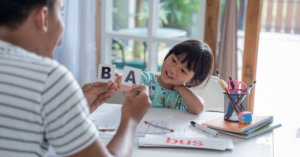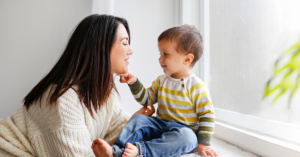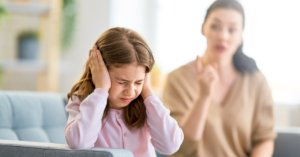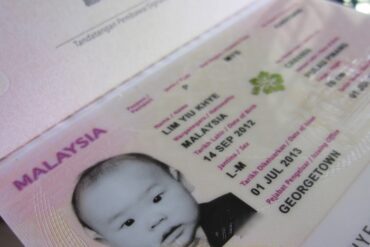Effective communication is an important aspect of any relationship, and this is particularly true when it comes to parent-child communication. As a parent, it’s essential to establish clear and open channels of communication with your child. Effective communication with kids requires both talking and listening. In this article, we’ll discuss some strategies for talking and listening that can help you establish and maintain strong communication with your child.
Strategies for Communication: Talking and Listening
Be Present and Focused

One of the most important strategies for effective communication with kids is to be present and focused. When you’re talking to your child, make sure you’re giving them your full attention. Put down your phone, turn off the TV, and make eye contact with your child. This will show them that you value and respect their thoughts and feelings.
Use Clear and Simple Language

When you’re communicating with your child, it’s important to use clear and simple language. Kids may not have the same level of vocabulary as adults, so make sure you’re using language that they can understand. Avoid using technical terms or jargon that may confuse or intimidate them.
Listen to Understand

Effective communication requires not only talking but also listening. When your child is speaking, make sure you’re listening to understand, not just to respond. Give them your full attention and ask follow-up questions to make sure you fully understand their perspective.
Validate Their Feelings

Validation is an important aspect of effective communication with kids. When your child expresses their feelings, validate them by acknowledging their emotions. This will help them feel heard and understood, which can strengthen your relationship.
Avoid Lecturing

Lecturing is not an effective communication strategy, particularly with kids. Instead of lecturing, try to have a conversation with your child. Ask open-ended questions that encourage them to express their thoughts and feelings. This will help them feel like they’re part of the conversation and not just being talked at.
Use Positive Reinforcement

Positive reinforcement is a powerful tool in effective communication with kids. When your child does something positive, such as completing their homework or helping with chores, make sure to acknowledge and praise their efforts. This will encourage them to continue with positive behaviors.
Show Empathy

Empathy is the ability to understand and share the feelings of others. When your child is upset, show empathy by acknowledging their emotions and trying to see things from their perspective. This will help them feel heard and understood, which can strengthen your relationship.
Avoid Criticism

Criticism can be damaging to effective communication with kids. Instead of criticizing your child, try to offer constructive feedback. Focus on specific behaviors or actions that you’d like to see changed, rather than criticizing your child as a person.
Be Patient

Effective communication with kids can take time and patience. Be patient with your child as they learn to communicate effectively. Remember that communication is a two-way street, and it’s important to work together to establish clear and open channels of communication.
Seek Professional Help if Needed

If you’re having difficulty communicating with your child, don’t hesitate to seek professional help. A therapist or counselor can help you develop strategies for effective communication with your child and strengthen your relationship.
Conclusion
In conclusion, effective communication with kids requires both talking and listening. To establish clear and open channels of communication with your child, make sure you’re present and focused, use clear and simple language, listen to understand, validate their feelings, avoid lecturing, use positive reinforcement, show empathy, avoid criticism, be patient, and seek professional help if needed. By following these strategies, you can build a strong and healthy relationship with your child based on effective communication.







